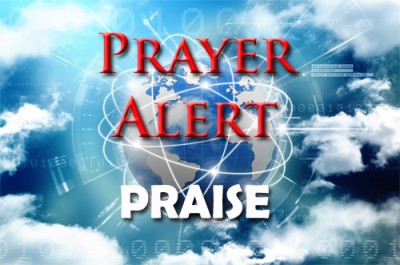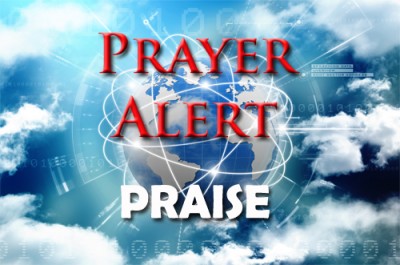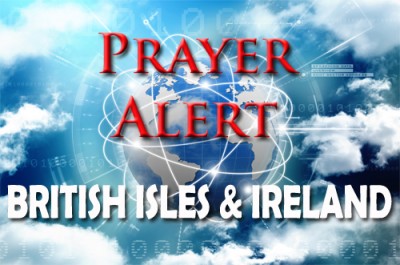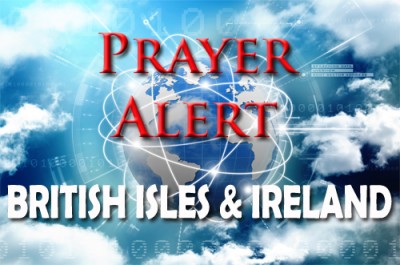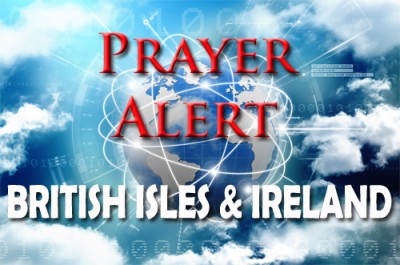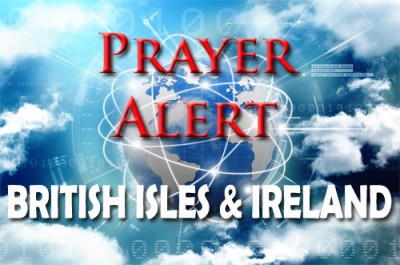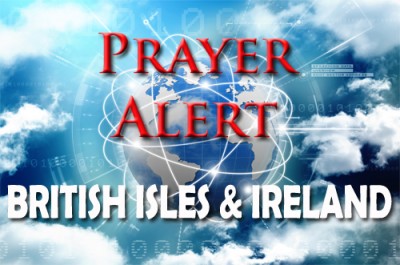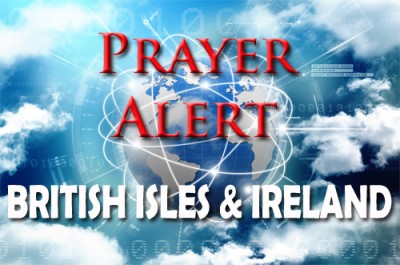Romania: answered prayers
10 Feb 2017Last week we prayed for a peaceful and satisfactory outcome when 200,000 people took to the streets over a government decree to free dozens of officials jailed for corruption. This week Romania's government scrapped the controversial decree. Now many politicians will no longer be shielded from prosecution for corruption. The decision came at an emergency meeting on the issue, following days of further street protests. One of those behind the move said it was to restore calm in Romania, but also strongly criticised the judiciary. Protesters have vowed to keep the pressure on the cabinet, with some demanding that the entire government should quit. One of them, Daniel, said, ‘I hope that this is a real repeal. We are going to keep an eye on them to make sure we are not being had’. The protests have been the country's largest since the fall of communism in 1989.
Pakistan: Christian freed on bail
10 Feb 2017Last week, after more than three years in jail, a Christian facing the death penalty on charges of blasphemy was granted bail by the Supreme Court in Lahore. Adnan Prince had been imprisoned in Lahore’s district jail since November 2013 after he was accused by a work colleague of insulting Islam, the Qur’an and Islam’s prophet. The three-man bench ordered the release of Prince, with bail set at Rs 300,000 (around £2,300). According to Mr Prince’s lead counsel, the case against her client should have been decided within two years. This did not take place due to lawyers’ strikes and delaying tactics by the prosecution, she said. She also explained that legal formalities were not fulfilled; guidelines passed by the Supreme Court say that a police officer of at least the rank of superintendent should have conducted the investigation. She added that there were no direct eyewitnesses and that all forensic evidence failed to link the accused. Although earlier bail applications had been dismissed by both a district judge and the Lahore High Court, the Supreme Court granted Prince bail and ordered his release. Similar cases have been known to take as long as seven years to reach trial.
Friday Focus - reconciliation in families
10 Feb 2017‘Parents, do not exasperate your children; instead, bring them up in the training and instruction of the Lord.’ (Eph. 6:4) Earlier in this letter, Paul urges husbands and wives to love and respect each other, laying down their lives for each other. When this is our aim, we go a long way to providing the role model that our children need to be witnesses to the love of Christ, encouraging them rather than ‘exasperating’ them, and building the kingdom of God as a family.
(written by Father Simon Penhalagan, Sion Catholic Community for Evangelism)
NHS: worst figures ever
10 Feb 2017Record numbers of patients spent more than four hours in accident and emergency units in England in January, figures leaked to the BBC suggest. It seems that January was the worst performing month since the four-hour target was introduced. The figures also suggest record numbers of people waited longer than twelve hours for a hospital bed once seen in A&E. The British Medical Association said the Prime Minister could no longer ‘bury her head in the sand’, and accused the Government of failing to grasp the seriousness of the situation. But a spokesman from the Department of Health said the vast majority of patients were seen and treated quickly, and busy periods in hospitals were supported by an extra £400 million of funding. The figures seem to show that of over 1.4 million attendances at A&E last month, only 82% - rather than the target 95% - were transferred, admitted or discharged within four hours. More than 60,000 people waited between four and twelve hours for a hospital bed after a decision to admit, known as a ‘trolley wait’.
Bishop was one of many abuse victims
10 Feb 2017Rt Rev’d Andrew Watson, the Bishop of Guildford, has said that he is a survivor of ‘appalling activities’ perpetrated by John Smyth QC, a former Iwerne Trust chairman facing multiple allegations of abuse. Bishop Andrew said, ‘It was abuse perpetrated by a misguided, manipulative and dangerous man, tragically playing on the longing of his young victims to live godly lives.’ An investigation by Channel Four found that both the Iwerne Trust and Winchester College had learned of allegations of abuse by Mr Smyth in the 1980s but failed to report them to the police. One man told the programme that some boys had been beaten so badly by Mr Smyth that they had to wear nappies to staunch the bleeding. When one of the men tried to take his own life, the Iwerne Trust launched an investigation. It compiled a confidential report in 1982, which described the beatings of 22 young men: eight of them received about 14,000 strokes. A statement from the Archbishop of Canterbury said: ‘We recognise that many institutions fail catastrophically, but the Church is meant to hold itself to a far, far higher standard and we have failed terribly. For that the Archbishop apologises unequivocally and unreservedly to all survivors.’
Many Irish pensions cut
10 Feb 201736,000 people, two-thirds of them women, have had their Irish state pensions cut by as much as €1,500 (£1,275) a year, as a result of changes introduced in 2012. While those entitled to a full pension have been unaffected by the changes, many of those who would have been in line for smaller pensions have lost out. Justin Moran of Age Action said, ‘It is a myth that the state pension was protected by the last government. It was cut, drastically cut, for tens of thousands of older people.’ In 2012 the government changed the eligibility criteria for a full pension, arguing that the changes were necessary to protect ‘core payments’ and ensure sustainability of the state pension; but one side effect of the changes has been to diminish the entitlements of some 36,000 pensioners. Women, who historically would have spent more time out of the workforce, have been hit particularly hard.
Transgender girl bullied at school
10 Feb 2017The mother of an 11-year-old transgender girl who was bullied at school claims that the school has not done enough to stop the bullying. She said that five months of escalating bullying has had a ‘terrible effect’ on her daughter, who had been physically attacked several times and was regularly abused and insulted. A statement from the school confirmed that a ball-bearing (BB) gun had been fired at a pupil. It added: ‘The matter has been treated very seriously, and the pupil who fired the gun has been permanently excluded. We wish to send a message out to our community that this behaviour is completely unacceptable and will result in removal from our school. We have enlisted the support of a national organisation to help us further with our training of staff and pupils and support for our transgender pupils. We have met with the parents of the pupil to apologise and to see what we can do further as a school.’
A rural ‘resource’ church
10 Feb 2017‘Resource’ churches in the Church of England tend to be led by men in a city, but this month, the diocese of Southwell and Nottingham announced that the Rev’d Alison Jones would be leading one that could meet in a barn. She said that she has not heard of any other ‘resource’ church in a rural setting. ‘I do feel it is very new, in that there is not a model to look to,’ she said. ‘In some ways, it really excites me; but it’s also slightly daunting. The phrase that we keep coming back to is a sense of the need to listen and learn ... A big part of it is going to be building relationships with, and supporting, those who are leading rural churches.’ The church, supported by funding from the Church Commissioners, is part of the diocese’s strategy - ‘Growing disciples: wider, younger and deeper’ - which includes plans to develop 25 resource churches. It is envisaged that each church will have attendance of at least 150 people by 2023, and plant at least one new worshipping community.
